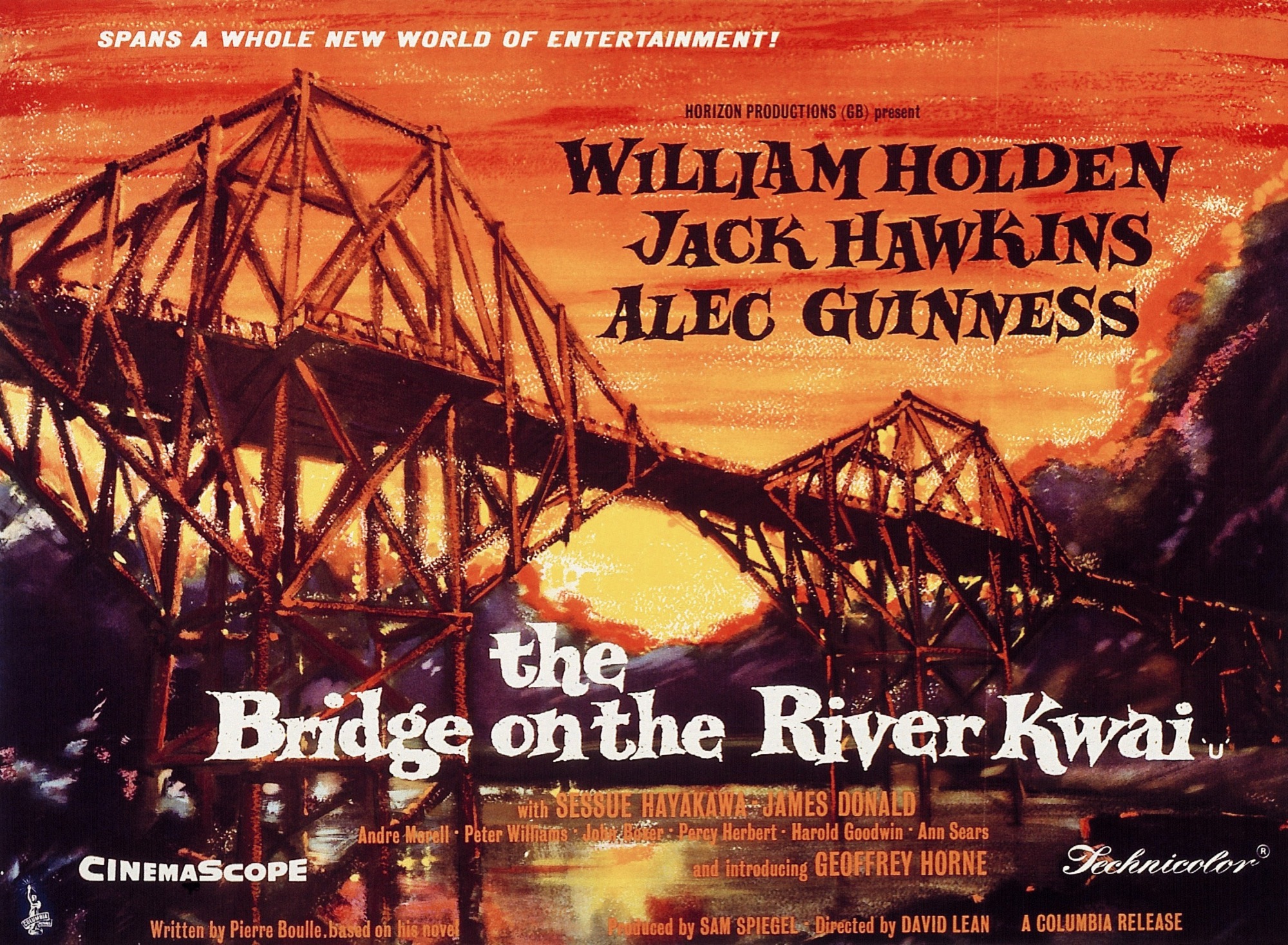
- Golden Globe Awards
1958: To Reconcile with the Enemy

Looking back to the middle of the 20th century, it becomes apparent how strong the feelings about the disastrous war years still lingered in the public consciousness. But the foreign journalists’ selection of the most significant dramas of 1958 reveals an interesting shift in its viewpoint: to examine delicately reconciling with former enemies.
The most celebrated film at the 1958 Golden Globes ceremony was David Lean’s The Bridge on the River Kwai. It won three awards (Best Director, Best Motion Picture Drama, and Best Actor Drama for Alec Guinness), and saw the widely applauded Best Supporting Actor nomination of Japanese-born performer Sessue Hayakawa.
The film’s emotional heart pounds in the chest of a British captive (Guinness) who is forced to construct a bridge in the jungles of Thailand that would help his Japanese captors in their war efforts. He becomes fully immersed in the challenge, and even protests against the destruction of the bridge by an American command: The pride in his achievements as an engineer overtakes his perspective as a prisoner of war
A different kind of conflict is presented in Sayonara, directed by Joshua Logan. Its focus is racial prejudice and the continuing illegality of interracial marriages under American law. The film projects this subject onto a military base near Kobe, Japan, where U.S. Air Force Major Ace Gruver (Marlon Brando) enforces that law — until, that is, he himself falls for the magnetic Hana-ogi (Miiko Taka).
Again, a woman from a former “enemy” nation is at the center of Wild is the Wind, directed by George Cukor. Nevada sheep rancher Gino (Anthony Quinn) travels to Italy to marry Gioia (Anna Magnani), the sister of his deceased wife. He brings her back to his ranch, but Gioia feels neglected and has an affair with ranch hand Bene (Anthony Franciosa). When Gino realizes how much he needs her, he pleads with Gioia to stay with him instead of going back to Italy. For her performance, Magnani, the great Italian diva, was nominated in the Best Actress Drama category.
In Billy Wilder’s Witness for the Prosecution, a German woman is the heroine. Marlene Dietrich initially displays Hollywood’s “Teutonic” stereotypes, presenting her as cold, calculating, and heartless. In the end, however, she’s revealed as the only truly loving and passionate person in a murder trial. Dietrich and Charles Laughton, as the barrister for the accused, are both in top form and received Golden Globe nominations for their work.
Director Sidney Lumet’s 12 Angry Men is less about the overcoming of barriers caused by history and language, culture, or race, and instead about very actively grappling with forms of prejudice: A jury of a dozen men has to decide the fate of a poor young man accused of murdering his abusive father. The entire film takes place in an overheated jury room and follows the struggles of the men to come to a consensus, despite their individual backgrounds, morals, and values.

